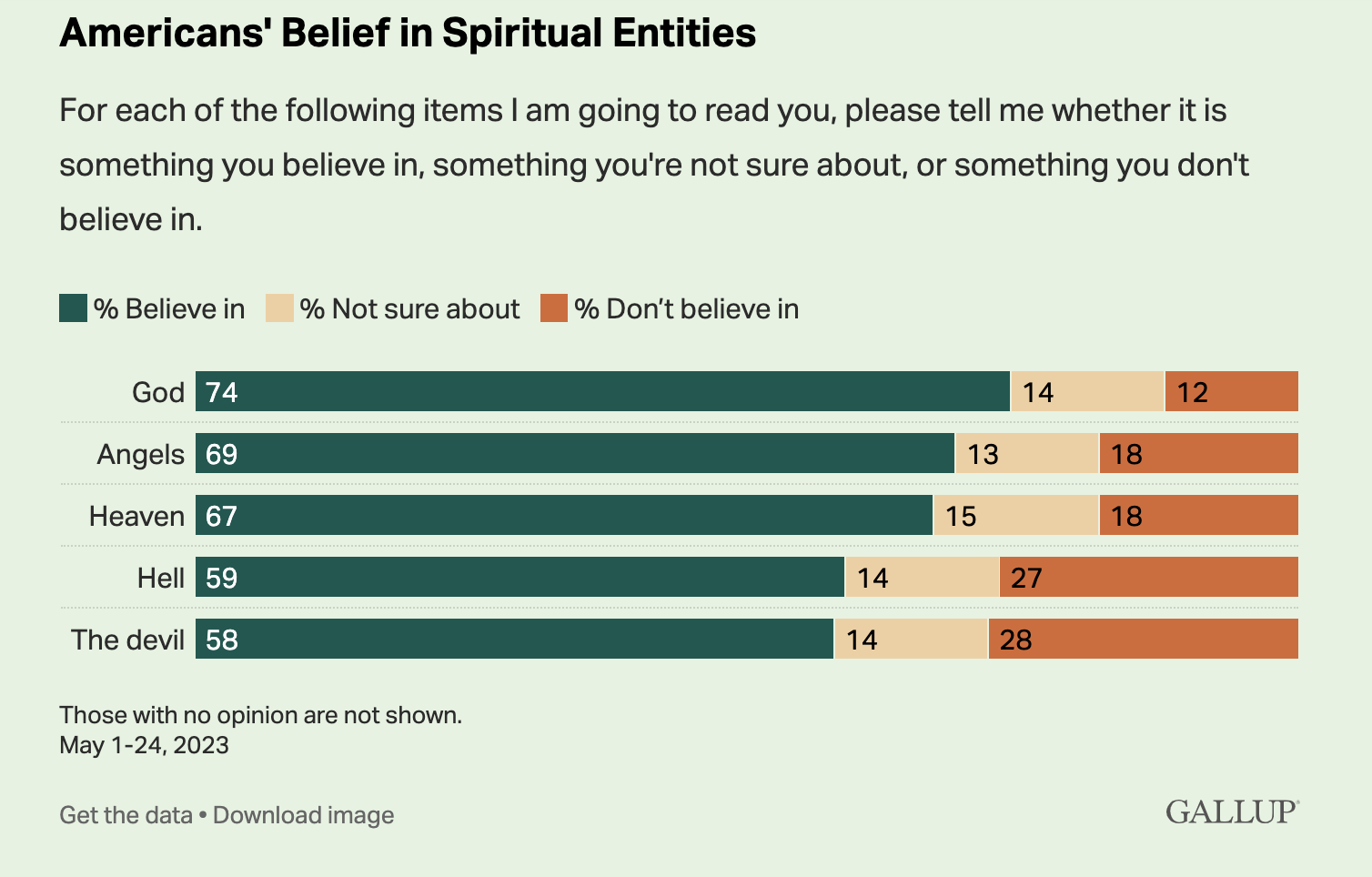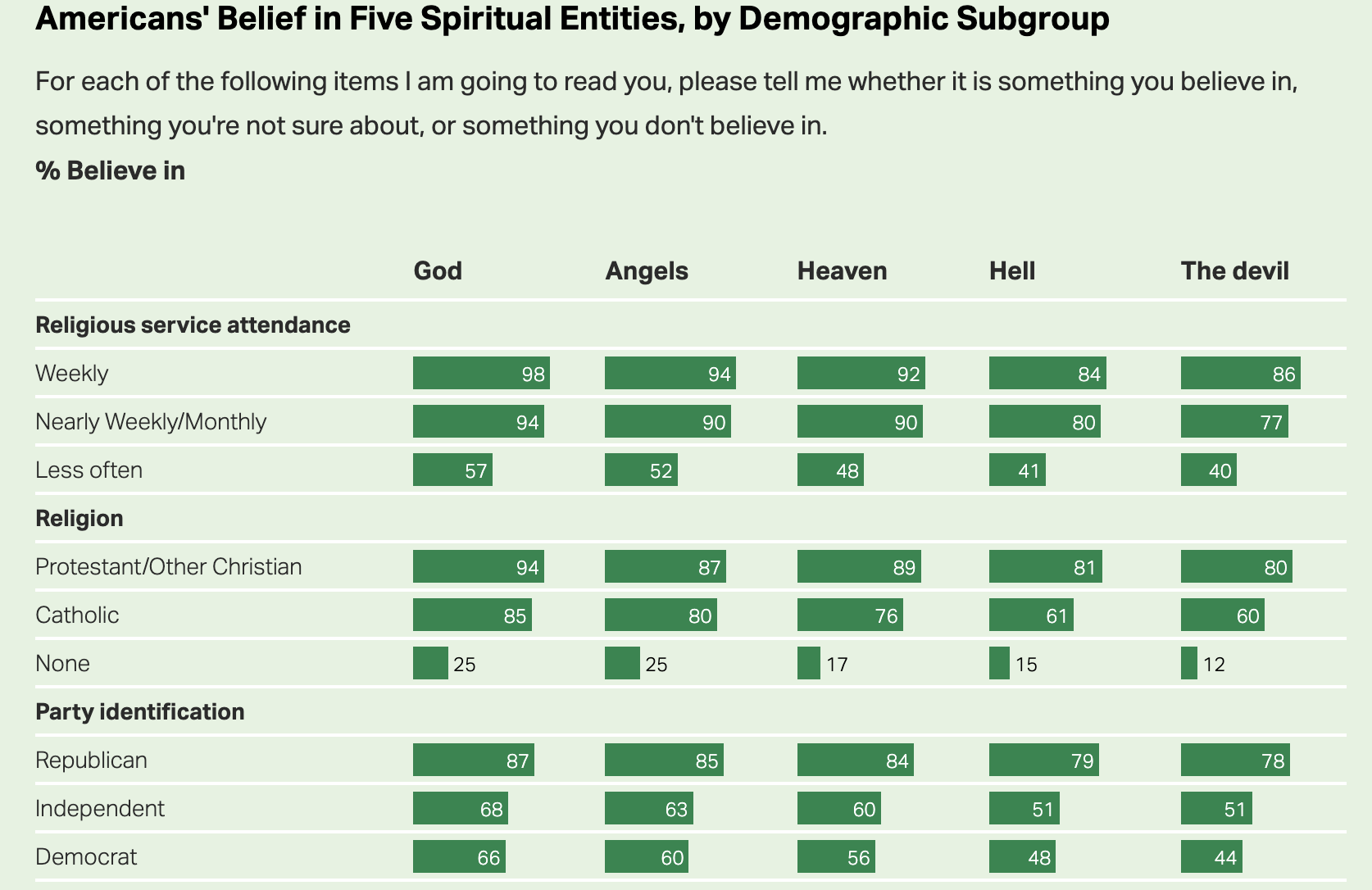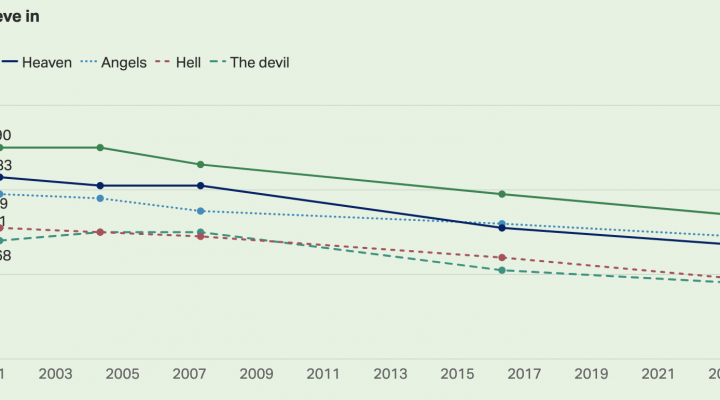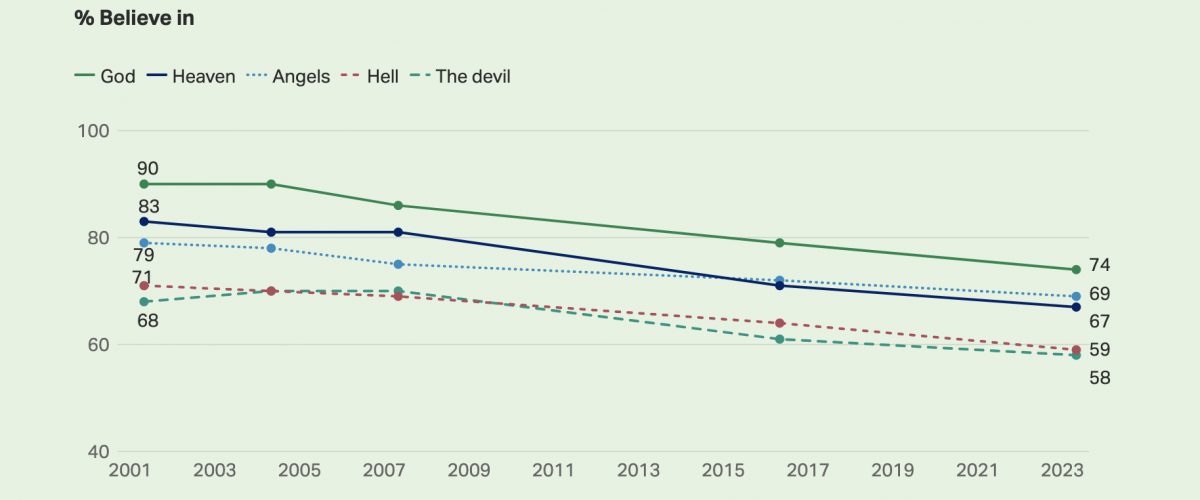It’s been a rough couple of decades for belief in God, angels, Satan and other key spiritual principalities, new research shows.
“Compared with 2001, belief in God and heaven is down the most (16 points each), while belief in hell has fallen 12 points, and the devil and angels are down 10 points each,” Gallup researchers said in a new report on Americans’ faith in what Gallup calls the “five spiritual entities.”
The research organization also reported belief in the five entities, although flagging, is nowhere near extinct, with 74% of all U.S. adults affirming belief in God, 69% in angels and 67% in heaven. Hell and the devil each dropped below the 60% threshold, at 59% and 58%, respectively.

But the overall trend for each category is heading downward, with a noticeable and continuing decline in confidence in the entities measured more recently, the study found. “The percentages of Americans who believe in each of five religious entities — God, angels, heaven, hell and the devil — have edged downward by three to five percentage points since 2016.”
Gallup said it has surveyed U.S. adults on the topic five times since 2001, with the latest poll conducted May 1-24. Respondents were asked if they affirm the existence of the five spiritual entities, harbor doubts or just don’t believe in them.
The study found 14% of respondents said they are unsure of God’s existence, compared to 12% who do not believe in God at all. The percentages were slightly higher for heaven, with 15% expressing doubt and 18% professing disbelief.
Hell and the devil fared only slightly better in the survey, with 14% of adults harboring doubts in both while 27% and 28%, respectively, said they do not believe in those entities.
Altogether, disbelief in the spiritual entities is rising much faster than uncertainty about them, the Gallup researchers added. “This is true for all but belief in God, which has seen nearly equal increases in uncertainty and nonbelief. In the current poll, about half of Americans, 51%, believe in all five spiritual entities, while 11% do not believe in any of them. Another 7% are not sure about all of them, while the rest (31%) believe in some and not others.”
Demographic groups with the highest levels of belief include frequent churchgoers, Protestants and political conservatives. “Protestants are more likely than Catholics to believe in each of the five entities; however, broad majorities of Catholics still believe in each,” Gallup reported.

The divide between Protestants and Catholics is smaller on belief in God and angels than on heaven, hell and the devil, the survey found. “In both religious groups, the minority of people who do not express belief in God are more likely to say they are unsure than express nonbelief. In contrast, no more than 25% of Americans without any religious affiliation believe in any of the spiritual concepts, and they are more likely to express nonbelief rather than uncertainty.”
Close to 100% of respondents who attend religious services weekly said they believe in God, while 94% in that category believe in angels, 92% believe in heaven, 84% believe in hell and 86% believe in the devil. Percentages were only slightly lower among those who reported monthly attendance, Gallup said.
Measured by political affiliation, 87% of Republicans stated belief in God. Another 85% and 84% expressed belief in angels and heaven. Belief in hell and the devil drops to 79% and 78%.
The drop-off is significant among independents and Democrats. Among independents, 68% stated belief in God, 63% in angels, 60% in heaven and 51% each in hell and Satan. For Democrats, belief in God stands at 66%, 60% for angels, 56% for heaven, 48% for hell and 44% for the devil.
Gallup also found a gender gap in the study, with 79% of women expressing belief in God compared to 70% of men. “Women are more likely than men to believe in all of the spiritual concepts except for the devil, which 58% of both groups say they believe in,” according to the report.


